Amy has dealt with endometriosis from a young age, and despite its challenges, never let them get in the way of having a successful and fulfilling career.
Amy discusses how a supportive environment, and the power of honest communication can really make a difference for those suffering with the condition.
Can you tell us a bit about yourself and your experience with endometriosis?
My name is Amy, I’m 37 and I live with my pug Blaise. In my spare time I run an endometriosis support page which aims to raise awareness of the condition as well as illnesses often associated with endo.
I first started experiencing issues when I was 13 years old after starting my period. This first manifested itself in heavy and severely painful periods which would leave me bedbound for days and suffering with gastro issues. I repeatedly went to doctors but was told that this was normal, so I tried to cope as best I could. At 18, I was given the contraceptive pill which helped initially, but I continued to suffer with chronic pelvic pain, resulting in doctors diagnosing with me Irritable Bowel Syndrome (IBS). I tried countless medications and went through several investigative procedures, which all came back clear as the doctors were convinced it was a gastro issue. Sadly, doctors also claimed I was depressed or simply making up my pain for attention or painkillers. I was admitted to hospital many times in excruciating pain, only to be released after doctors ran tests for appendicitis, finding nothing. The medical gaslighting I experienced in this time really impacted my trust in doctors as I was constantly made to feel I was wasting people’s time, even though I knew there was something wrong with me.
In 2019, my symptoms got a lot worse, and I lost two stone in two months, and struggled to go to work as I couldn’t get out of bed most days, even to shower. A friend of mine was diagnosed with endometriosis, and we swapped “war” stories and I decided I needed to see the same specialist. Luckily, I had the use of private medical cover through my employer at the time. When I finally got to see him, he confirmed within 15 minutes of meeting me that I had endo and he booked a laparoscopy. In 2020, it was confirmed that I had stage IV endo which is deep infiltrating, and it was one of the worst cases he’d ever seen. Unfortunately, since February 2020, I’ve needed two more excision surgeries, which is a type of keyhole surgery to cut endometriosis out at the root, as it came back within six months of each surgery. During my third surgery, I was also diagnosed with adenomyosis, which is similar to endo, but the tissue grows into the walls of the uterus, and I was told a hysterectomy was the only treatment option left for me.
This year, after much consideration, I decided to go ahead with a hysterectomy, and decided to freeze my eggs. This was a massive decision as I hadn’t had children and knowing that I would go into surgical menopause instantly was scary as everything was so unknown. Six weeks after my hysterectomy I started HRT, but unfortunately doctors are finding it very difficult to find the right balance of hormones for me and I keep slipping back into the menopause.
I wish I’d known how difficult it was going to be to deal with the menopause at such a young age. I’ve experienced horrible symptoms like insomnia, fatigue, brain fog, depression and itching and I feel like I’ve aged around 10 years! The endometriosis has already returned, and I’m experiencing all those familiar pains. It’s a common myth, and some Doctors still believe that after a hysterectomy and the menopause, endo can no longer grow, but I want people to know that this isn’t always true. This month I’m going for a nerve block procedure, which is similar to an epidural but lasts longer, which we hope will help with the pain as I don’t want surgery for at least another three years. I was hoping 2023 would be a quiet year for me in terms of medical attention, but endo had other ideas!
What’s it been like dealing with endometriosis while working?
Work has always provided a distraction from the pain I was experiencing on a daily basis but getting through the working week would take up all my energy and I’d be exhausted on weekends. I would always try to not let endo impact my work, as I’m a perfectionist and I don’t like letting anyone down, however, endo would sometimes get the better of me and I’d have to take time off work. Outside of Admiral, I’ve had managers who didn’t support me and didn’t try to understand what I was going through, even holding the risk of losing my job over my head. But over the last few years I’ve had some of the best managers who actually pushed me to get the diagnosis and really gave me the strength to continue working while going through so many surgeries.
When I started my interview process with Admiral, I made my manager aware of my upcoming surgery and that I was battling a chronic condition. He was extremely supportive and told me not to put any pressure on myself and to concentrate on getting better. I was offered my position on the day of my surgery, which was great news on a day full of worry! I made the recruitment team aware that I was having surgery that day and that I wouldn’t be in touch for two weeks while I recuperated. The team again were so lovely, they sent emails to check how my recovery was going and I also came out of hospital to a beautiful bunch of flowers and a get well soon card. Small touches like this, when for so long work was somewhere I didn’t talk about my illness, made me feel accepted and comfortable to be open and honest about what I was going through. On my first day of work, I was contacted by People Services, and we talked through my condition and how it affected me. I was referred to a Workplace Support Executive who provided details on how to order equipment that would support my ongoing recovery, and to help ease the pain from the nerve damage. What people might consider as small touches really help an endo sufferer feel heard and comfortable enough to be honest with their experience. No other employer has treated me so respectfully and supportively when sharing information on my conditions and journey so far. I was also very excited to learn that Admiral had signed up to the Endometriosis Friendly Employer Scheme which demonstrates their commitment to raising awareness of the condition.
What sort of support do you find to be the most helpful?
Be there to listen, but please don’t offer advice, especially if you haven’t experienced the condition yourself, because it’s likely that we’ve tried most of the things you recommend! My go to when people ask how I am is “I’m fine” which will mean “I’m in pain but getting by”. If I say “I don’t feel great”, this will mean I’m in a lot of pain and struggling, and at this point just having someone to pack my bag is the biggest help.
Comfortable places for when the pain gets too much are also incredibly useful. Sometimes just having a private area to lie down can give someone the space they need to go through the motions of getting their pain under control.
Flexibility is equally important. I have no way of knowing how I’m going to feel each day and my pain levels can change every hour, so being able to work flexibly really helps.
Finally, access to private healthcare is important, especially with NHS waiting lists being at an all-time high. I know women who have been waiting five years for a hysterectomy, or two years for a laparoscopy. If private healthcare isn’t possible, giving the appropriate support while people are on the waiting list for surgeries is important. Also, sharing resources is useful as not many people know what treatment options are available.
What advice would you give anyone with endometriosis that may struggle at work?
Talk to someone, endometriosis can be a very lonely condition, as the symptoms we experience can be embarrassing to talk about, especially to those who don’t have endometriosis. Don’t suffer in silence and be honest about how you feel. I found that the more I spoke about things, the more help I received from the people around me. Lastly, as in my case, it can sometimes be useful to get a second opinion, if you think you might have endometriosis but are yet to be diagnosed.
Since publishing this article, many colleagues reached out to Amy, so she started an internal support group for open conversations and support around living with endometriosis.
Discover more about what it means to be an endometriosis friendly employer.







